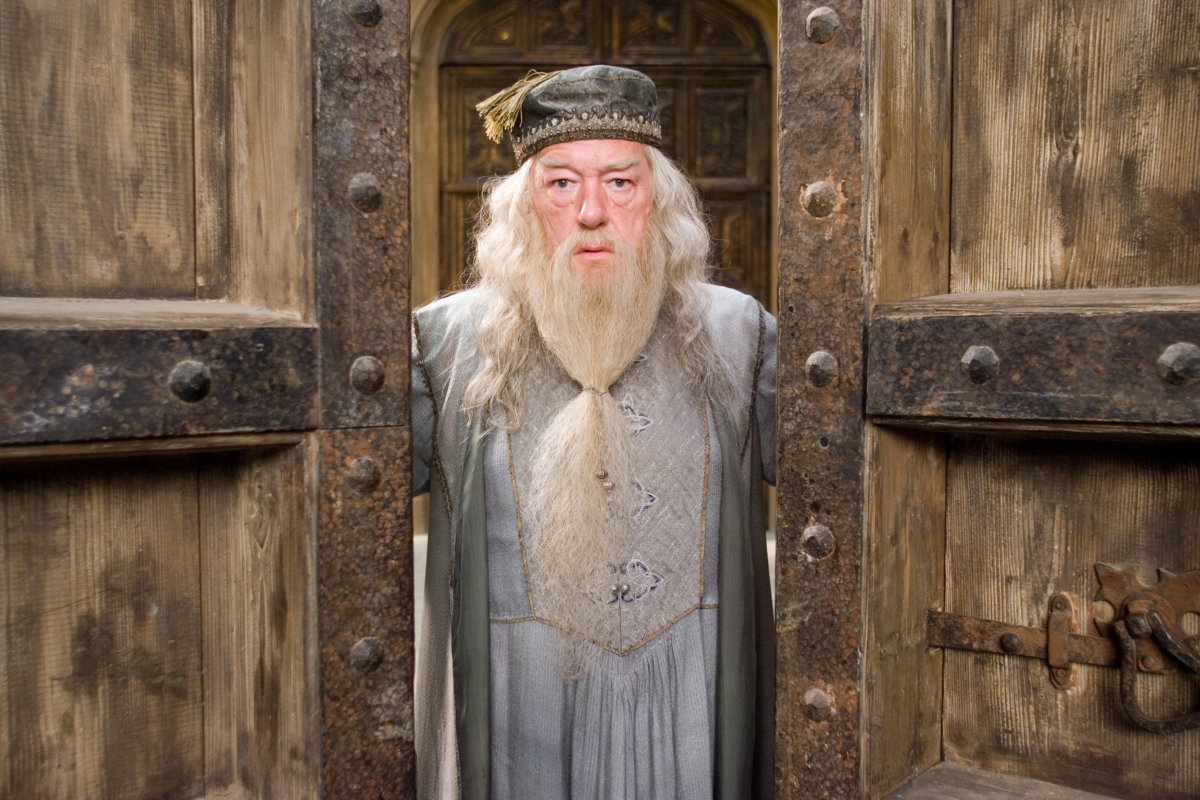The Harry Potter series’ beloved Hogwarts headmaster Albus Dumbledore was revealed to be gay back in 2007 by author JK Rowling. He was said to have fallen in love with Gellert Grindelwald, who he was close friends with prior to Grindelwald’s rise as one of the most notorious dark wizard in the history of the wizarding world. As Grindelwald is now the primary antagonist of the Fantastic Beasts film series, and with Jude Law’s take on Dumbledore set to be introduced in the second film, Fantastic Beasts: The Crimes of Grindelwald, the question was raised of whether or not Dumbledore’s sexuality will be explored.
Now we have the first concrete answer to that question, via director David Yates. When asked over whether the film will make clear that Dumbledore is gay in an interview with Entertainment Weekly, Yates gave this reply:
“Not explicitly. But I think all the fans are aware of that. He had a very intense relationship with Grindelwald when they were young men. They fell in love with each other’s ideas, and ideology and each other.”
Let’s get the obvious out of the way first: Dumbledore will be gay. There is no question about that. Rowling is penning the film series, and she will be dead set in preserving that aspect of the character, and Yates pretty much confirmed that he is in that quote. So anyone worried about that can relax.
Crimes of Grindelwald will only be the second in a five-part film series, so there are still three films to come where this can be addressed explicitly. In the mean time, the filmmakers could to take a leaf out of Disney’s book, in the way they handled LeFou’s sexuality in last year’s live-action Beauty and the Beast remake.
Ahead of the film’s release, it was revealed that LeFou, played by Josh Gad, will be gay in the film, with director Bill Condon mentioning that the character will have an “exclusively gay” moment in the film. In the end, scenes where LeFou could be implied to be gay is only played for laughs for most of the movie, and Condon later went on to say that his comment was “overblown.”
But what that revelation ahead of the film’s release did is change the way the audience sees Lefou. The character’s arc works whether you knew this piece of information or not, but your perception of the character changes. LeFou turns from a sidekick who effectively fanboys over Gaston, to a sidekick who is romantically attracted to, or even loves, Gaston. This added information shifts the way the scene where Gaston abandons LeFou to chase after Belle in the third act. Without the information that LeFou is gay, this just comes across as an especially harsh “never meet your hero” moment. With that information, this scene becomes one where LeFou seeks the help of the man he loves, only for Gaston to leave him helpless and broken hearted. LeFou’s reaction in that scene is one of harshly unrequited love, from which he rose out of and turned him into a better man. A subtle and non-explicit, yet exclusively gay moment nonetheless.
As Yates mentioned, the fanbase is already aware of Dumbledore’s homosexuality. And conversations like this being brought up only serves to further circulate this information. The result of this will be an audience walking into a film potentially seeing, and understanding that they are seeing, a Dumbledore suffering the impact of his romantic feelings towards Grindelwald.
Rowling has previously described Dumbledore in this series as a “troubled” man. While most die-hard fans will know the backstory of this anyway, the general audience will only see a man deeply affected by his history with another man. The film might show a man hurt by the betrayal of a friend, but will imply the deeper, more impactful scenario of a man hurt by the betrayal of not only a friend, but also someone he loved.
Simply put, Crimes of Grindelwald doesn’t need to explicitly confirm Dumbledore’s sexuality, as a reveal would be wasted on fans who know about it already. An expository reveal would be a waste, and a confrontation between Dumbledore and Grindelwald about the nature of their relationship is best saved for a later film. For now, the film showing a damaged Dumbledore, hurt by his experience with Grindelwald, safe in knowing that the audience will pick up on the romantic implications, should be enough.
Some of the coverage you find on Cultured Vultures contains affiliate links, which provide us with small commissions based on purchases made from visiting our site. We cover gaming news, movie reviews, wrestling and much more.



